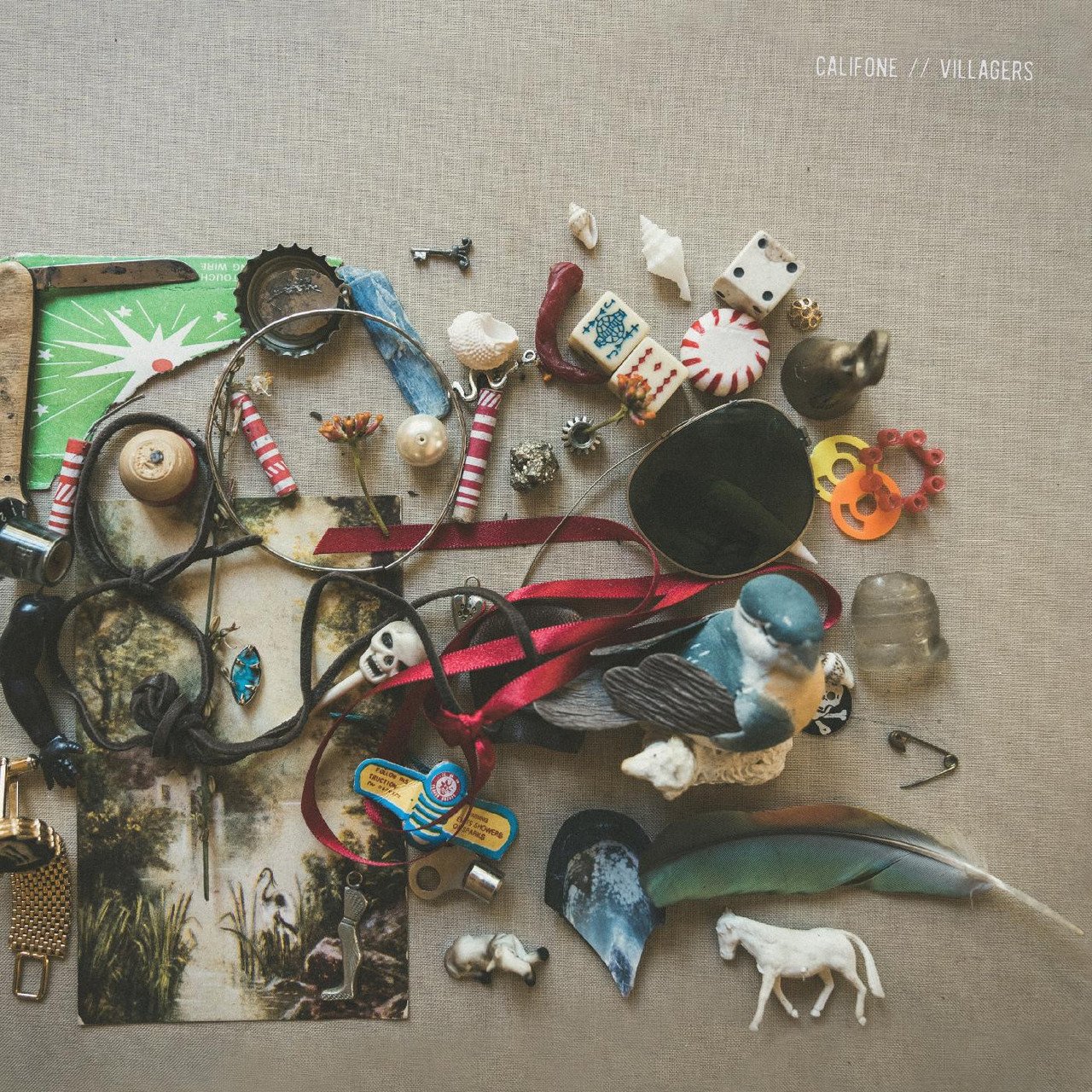Album of the Year
by Howard Male
May 2023
A little early to start making one’s predictions for the Album of the Year awards? Well, not when you’re 99% certain nothing else this intricately immersive and moving will come along in the next seven months.
My definition of beauty changes whenever I hear, see, or read something that, by its very nature, expands my definition of beauty. And that’s exactly what Chicago’s Califone have been doing for me since I first heard the propulsive junkyard noise of the track ‘Your Golden Ass’ off their 2003 album Quicksand/Cradlesnakes. That song somehow captured the spirit of the Velvets at full tilt, without being even remotely imitative. And it prompted me to immediately buy all of Califone’s back catalogue.
Now here we are, twenty years later, and I’m excited all over again. For with Villagers Tim Rutili—the heart, soul and main songwriter of Califone—has lovingly overseen the creation of their best and most accessible work to date.
OK, ‘best’ is perhaps jumping the gun. How can one objectively compare new music to around a hundred and fifty songs already in one’s bones? So let me just say this, then: something deeply pleasing has taken place with Rutili.
Here is an artist who used to seek out the shadows in the forest more than the light. Songs were built around bluesy, cyclical guitar riffs and ominous, ground-hugging basslines. They tended to have a melancholy undertow, Rutili’s vocals sounding like he was half-hoping not to be overheard. Or, to put it another way, Califone albums were a sonic world in which dissonance and disorganisation were constantly battling for dominance over harmony and structure.
Long-term fans will be pleased to hear that, with Villagers, the avant-garde experimentalist is still in the house—it’s just that now he’s thrown open the French windows and let in some sweet-toned female backing vocalists, some keen-to-swing brass players, and a string section that adds an almost Bacharach-like expansiveness. In short: Rutili is no longer fighting the pop music traditionalist in himself with quite the same rigour.
“On Villagers, Califone tread the fine line between exquisite, sensitive pop music and avant-garde experimentalism, with more deftness and swagger than they’ve ever done before.”
Some wise soul (Zappa? Costello? Google for once doesn’t seem sure) once said: writing about music is like dancing about architecture. So, to better describe what has happened here, I’m going to write about painting. On Villagers, Califone are comparable to when Van Gogh left the lumpen potato-eaters and the gloomy churches of the Netherlands for the sun-drenched landscapes of the south of France. No more burnt umbers and sickly twilight greens; instead, lots of yellow ochre and cobalt blue, straight from the tube and onto the canvas.
Yet, as with dear Vincent and that murder of crows rising up out of the golden wheatfield, there’s still some darkness creeping back into the picture. Rutili, thankfully, still can’t resist the impulse to fuck things up, throwing in shards of distorted lead guitar, car-horn brass, tin-can percussion and jittery morse-code synths which threaten to undermine the very infrastructure of these otherwise pretty, even delicate, songs. And on tracks like ‘The Habsburg Jaw’ and the Faces-ish ‘Oxeye’ the band tread the fine line between exquisite, sensitive pop music and avant-garde experimentalism, with more deftness and swagger than they’ve ever done before. To continue with the painting analogy, these songs are like sonic Robert Rauschenbergs.
A few words on the words. Often, Tim Rutili’s lyrics come across as just another textural aspect of the whole, their meaning (hard to decipher anyway) somewhat secondary. But as with the music, Villagers offers a bit more directness and transparency. For example, no one of a certain age and musical persuasion could fail to feel a warm buzz of imagined recognition at ‘A Roxy Music cassette dying in the dashboard sun’ on the title track. Or smile at the memories of home-hunting and nest-building perfectly encapsulated by the line ‘When we get where we get, you know the Halloween decorations are never coming down’. And then there’s this wry comment on the palimpsestuous indulgence of the contemporary visual artist: ‘A painting of a photograph of a painting… of a digital file.’
For the ideal entry point to Califone’s infinitely-detailed world of off-kilter music and broken-mirror lyrics, I recommend ‘Comedy’. And if you don’t get goosebumps when the chorus swells with brass and strings, and Rutili abrasively croons ‘The absence of faith is a chemical affliction, and I’m not your slave anymore’ then maybe Califone aren’t for you.
But you won’t be able to say I didn’t try.


